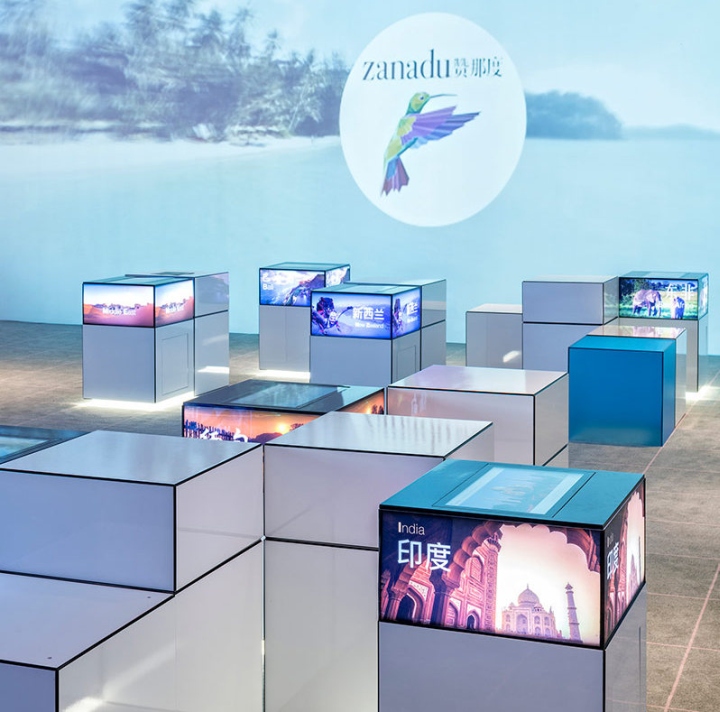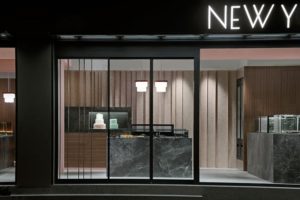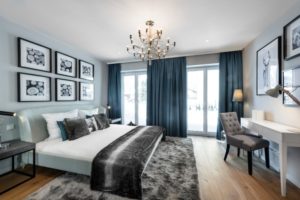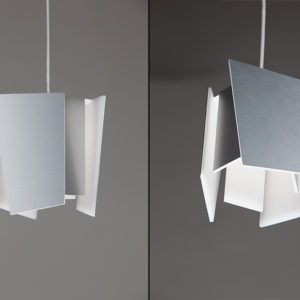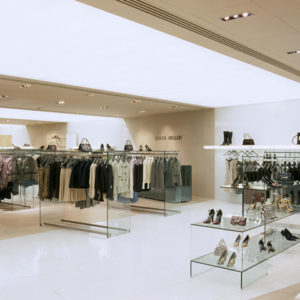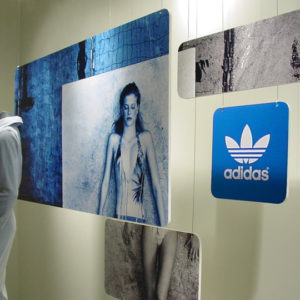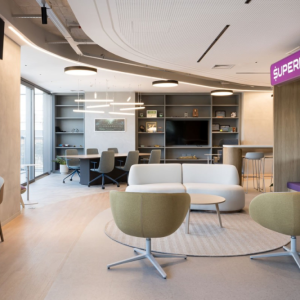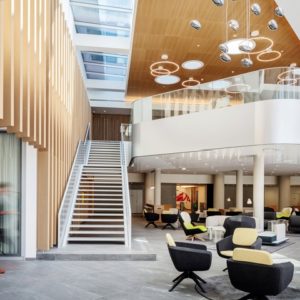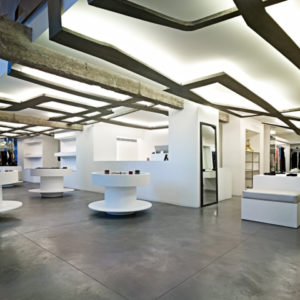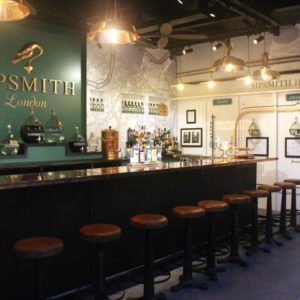


ZANADU is a 4 years old e-commerce startup-company in the premium travel space in China. They provide a suite of travel products to affluent Chinese travelers. Signature journeys, international luxury vacations, high-end cruises, domestic short vacations, private villas and a large selection of the world’s best boutique and luxury hotels. Since the Chinese travel market is comparatively young, many consumers are not clear about the aspects of luxury vacations. What are boutique hotels? What to expect on an exclusive luxury journey? How are high-end cruises different from the usual cruises? etc. To answer these questions for their prospective customers, ZANADU has used a variety of media. They operate a very successful WeChat channel, they publish a quarterly magazine, they shoot video content, and in 2015 they started to shoot 360° virtual reality videos. These so called VR videos make it possible to experience destinations and hotels before customers make a booking. ZANADU has held many road shows and offline events where they provide these experiences to prospects. Because of the success with this technology, they decided to create a permanent space where customers can experience their travel products in innovative ways, including VR technology. Value Retail, the world’s largest operator of luxury outlets, offered ZANADU a 600sqm space at the newly opened Shanghai Village in Shanghai Pudong, right next to Disney.
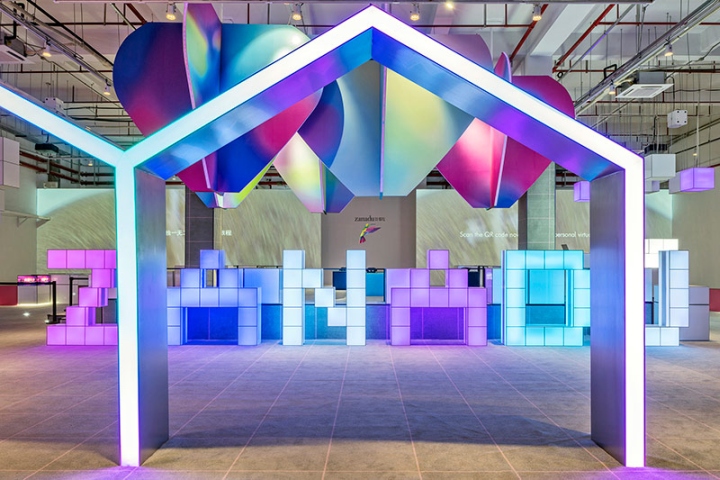
Shishang Architecture was hired to design the space considering several aspects and stakeholders:
– The space should reflect the ZANADU brand. This is a very young brand, and this space is the first offline location for the brand. Lots of consideration was put into how to portrait this online brand in an offline environment.
– The space should feature the VR technology and VR experience as a center piece and attraction for walk-in customers.
– There should be more functionality to showcase popular destinations and travel products in an interactive way using touchscreen terminals.
– VR experiences can be very individual and quiet, since the users wear a VR glass. The challenge was to make the place exciting and immersive at the same time.
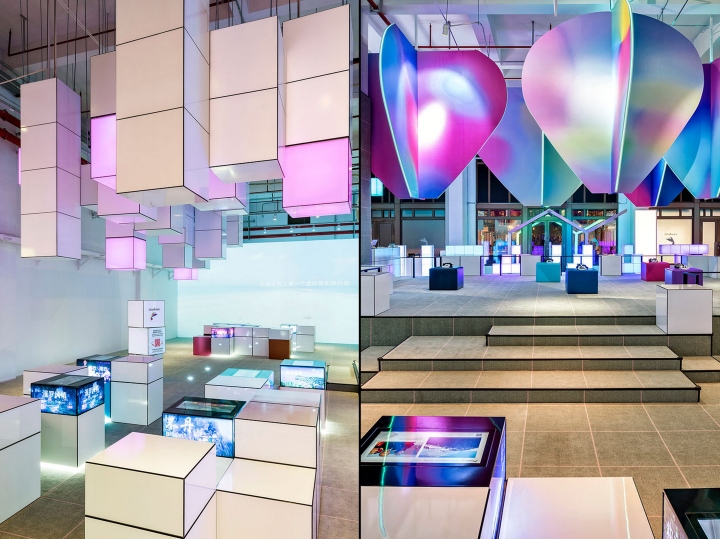
The big idea was “The travel agency of the future”. In the west, brick-and-mortar travel agencies are everywhere and reflect the old way of booking a vacation. In China on the other hand, most travel is being booked online, and offline agencies were never really popular. We wanted ZANADU’s first brand space to reflect how travel will be booked and experiences in the near future.
The big idea influenced the design and functionality of the space:
– The design language is very much tech-driven. The space feels like an exploded pixel landscape. Digital clouds hang from the ceiling. Digital cubes are scattered in island across the space. The pixels represent the digital origin of the brand, translated into a physical environment.
– Five gigantic digitally stylized ballots are the center-piece of the space, inviting visitors to take a seat beneath them and start a virtual journey.
– 20 interactive destination cubes were fitted with touchscreen monitors, displaying interactive stories about journeys, products and destinations.
– Two 10-meter-wide projection screens and a surround sound system made for dramatic audio-visual effects. Every 15 minutes a 2-minute-long cinematic brand film plays out across the 20m width of the screen.
– Everything in the store is linked via WeChat and QR codes to ZANADU’s customer relationship management system. Every visitor will scan a QR code to receive a VR experience or link to specific products
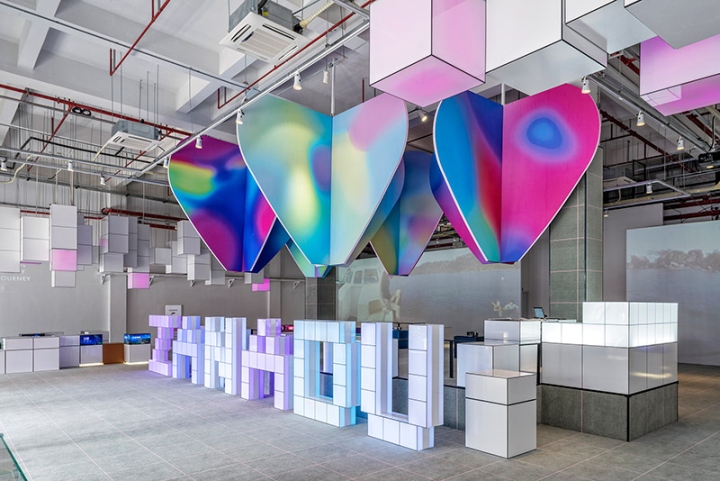
The ZANADU Space in the Shanghai Village had a soft opening in May 2016 and an official opening event on August 3rd. Shanghai Village has 165 retail outlets, and since the very beginning the ZANADU space has been the most visited place in the entire village. There is a monthly footfall of 10.000 visitors, 75% of which have the VR experience and join the CRM program.
Many influential Chinese media reported on the store opening, including influential publications in the tech sector (36kr, Pingwest), travel media (tnooz, traveldaily), TV stations like CCTV and Phoenix TV and online portals like sina and ifeng.com
Design: Shishang Architecture
Photographer: Sui Sicong
